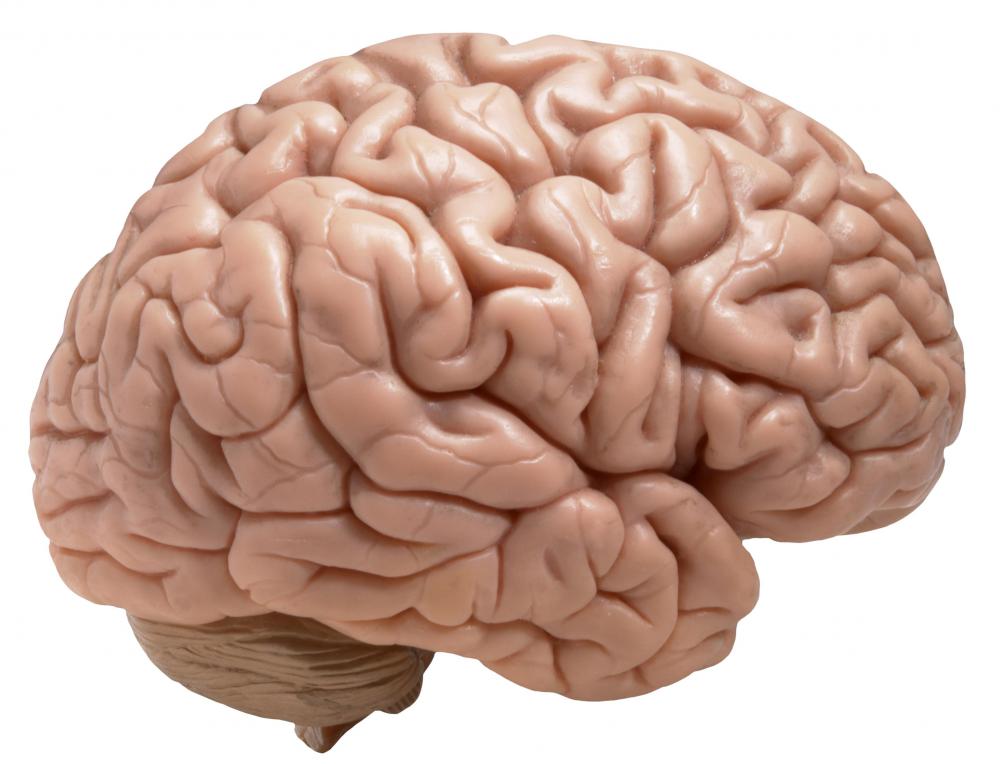At WiseGEEK, we're committed to delivering accurate, trustworthy information. Our expert-authored content is rigorously fact-checked and sourced from credible authorities. Discover how we uphold the highest standards in providing you with reliable knowledge.
How Effective Is Ginseng for Depression?
Taking ginseng for depression has been shown to treat symptoms and improve mood. Taking ginseng to treat depression is thought to work by balancing serotonin and dopamine, which are neurotransmitters that regulate the mood. There are four types of ginseng, which are American, Korean, Siberian, and Chinese. Each type of ginseng has antidepressant properties, though the Siberian version is thought to be the mildest and produce the least side effects.
In addition to balancing the "feel good" chemicals in the brain, ginseng may also be effective because it might also help strengthen the immune system and prevent people from getting sick, resulting in less depression. People also take ginseng to improve symptoms of attention deficit disorder, arthritis, and chronic fatigue syndrome.

Although typically well tolerated by most people, taking ginseng for depression may cause side effects such as palpitations, muscle spasms, anxiety, and high blood pressure. The health care provider should be consulted before taking ginseng because it can interact negatively with medications and it may not be safe to take when certain medical conditions are present.

Combining ginseng with alcohol can intensify drowsiness and cause confusion, dizziness, and lightheadedness. Ginseng may not be safe to take with certain cardiac medications or with medications that are metabolized by the liver. Taking ginseng for depression should not be a substitute for getting treated by an experienced mental health professional. Some people prefer to self treat their symptoms of depression rather than seek professional help, but this is not recommended.

Depression afflicts millions of people worldwide, and many of those people needlessly suffer in silence. Many available treatment options are typically covered under most medical insurance plans. Even when an patient does not have medical insurance, many medical providers will work with the patient to come up with a viable payment plan so that he can begin treatment.

Prior to taking ginseng for depression, the health care provider should be consulted and a physical examination may also be warranted. A basic blood chemistry profile should be taken to determine if the liver and kidneys are functioning well. Many times, after a physical examination rules out significant diseases or medical conditions, the health care provider may be more inclined to recommended ginseng for his patients suffering from depression.
AS FEATURED ON:
AS FEATURED ON:

















Discussion Comments
Any medication for depression will not work unless it is combined with psycho-social therapy. The effect people have on other people cannot be replaced with medication.
I am taking it for energy, but it is causing panic attacks.
@SarahGen-- Depression and anxiety are not the same thing though.
Ginseng is a stimulant, so it can cause side effects like anxiety and insomnia if it's consumed in excess. You should avoid other stimulants like caffeine when you take a ginseng supplement. It's also a good idea to lower the dose or take a break from ginseng for a while if you have anxiety because of it. If you have high blood pressure, ginseng may also raise your blood pressure like the article said and cause heart palpitations and nervousness. All of these are separate from ginseng's benefits for depression.
When taken in the right amounts, ginseng can improve overall mood. That's how it is effective for depression. It's always a good idea to ask a doctor before taking ginseng.
I'm not sure that ginseng helps with depression. I take ginseng too. It definitely gives me energy, but it also gives me anxiety and sometimes insomnia.
I wasn't taking ginseng for depression, I was taking it for energy. But I noticed after several days of taking the supplement that my mood improved greatly. I just feel more positive and happy. I stopped taking ginseng for a while and started to feel down and tired again. I think ginseng fights depression because it fights stress.
Post your comments